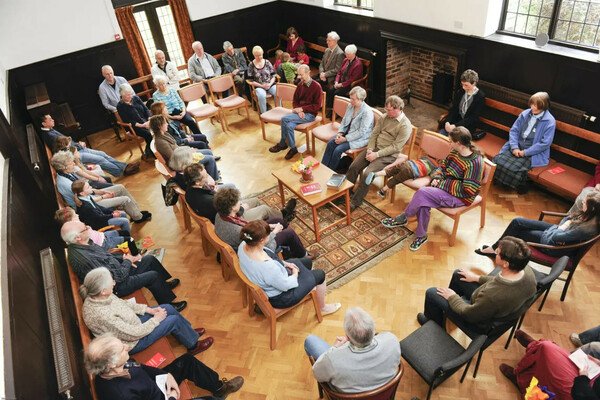Quaker Decision-Making: A Unique Spiritual Practice. Quaker decision-making is unlike any other process. It is based on deep spiritual principles that prioritize unity, discernment, and divine guidance. At the heart of Quaker decision-making is the belief that every individual has access to the Inner Light—a direct connection to the divine. This Inner Light is what guides Friends (Quakers) in both personal and collective decisions.
The Role of Silent Worship
Unlike most decision-making processes that rely on debate or voting, Quaker decision-making happens within the context of Meetings for Worship for Business, a gathering that starts with silence. This silence is not an absence of thought but a space for deep reflection and listening for the Inner Light. Participants wait in silence until someone feels led by the Spirit to speak. This vocal ministry is shared with the group, and the meeting returns to silence, allowing everyone to reflect on what has been said.
Through this cycle of silent worship and vocal ministry, the Quaker community gradually builds toward a decision. There is no rush to conclude the meeting. The emphasis is on allowing the sense of the meeting—a shared understanding of divine guidance—to emerge. The goal is not consensus but spiritual unity, where all participants feel that the decision reflects a deeper truth.
The Role of the Clerk
The Clerk is a central figure in Quaker decision-making. The Clerk is responsible for guiding the meeting, ensuring that the process remains focused and that all voices are heard. When a decision is reached, the Clerk records it in the minutes, summarizing the sense of the meeting. These minutes are then read back to the group for approval, ensuring that the decision accurately reflects the discernment of the community.
Equality and Respect in Decision-Making
Quaker decision-making reflects the broader Quaker commitment to equality. Everyone in the meeting has an equal right to contribute. There is no hierarchy, and no voice is more important than another. This is one reason why Quakers do not use voting; it would undermine the equality of the process by giving the majority more power than the minority. Instead, all contributions are weighed equally, and the meeting strives to discern what is spiritually right, rather than what is most popular.
A Collective Spiritual Journey
In essence, Quaker decision-making is a collective spiritual journey. It requires patience, openness, and humility, as participants must be willing to set aside their personal desires and wait for the Spirit to lead them. This process has been used for centuries, guiding Quakers through decisions big and small, from internal community matters to broader social justice initiatives.
In the next article, we will explore how Quaker decision-making is applied in practical situations and how individuals behave within this process.
Further reading:
Quaker decision-making a collaborative process



